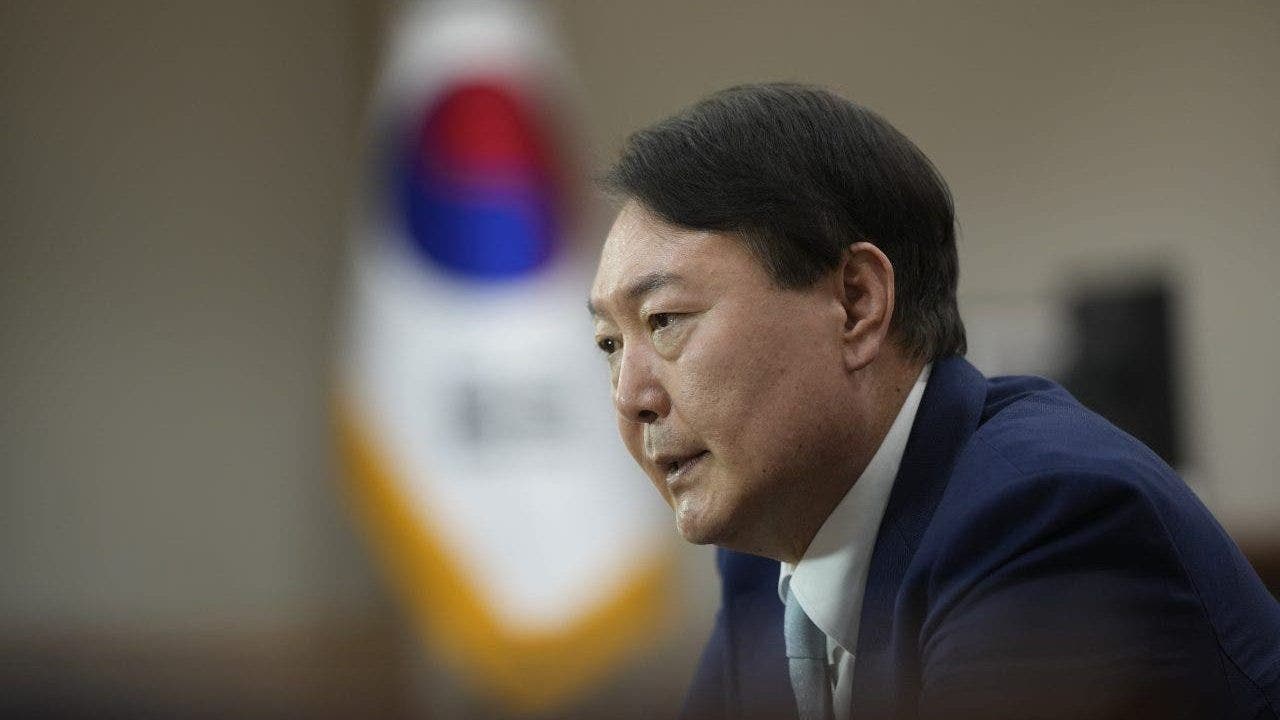An arrest warrant has been issued for the impeached South Korean president amidst a worsening political crisis.
For the first time, a South Korean president has been arrested while in office.

On Tuesday, a South Korean court granted permission to arrest and search the residence and office of former President Yoon Suk Yeol, who was impeached earlier this month, as part of a criminal investigation into his martial law decree.
A sitting president of South Korea, a key U.S. ally and Asia's fourth-largest economy, has faced arrest for the first time, following weeks of intense political turmoil. Additionally, the country is grappling with the aftermath of the deadly Jeju Air plane crash that claimed the lives of 179 people on Sunday.
The Corruption Investigation Office for High-Ranking Officials, in collaboration with police and military authorities, obtained warrants to detain Yoon and search the presidential office and residence in central Seoul, as stated in a release from the Seoul Western District Court.

The agency has been probing whether Yoon's Dec. 3 statement constituted rebellion, resulting in his suspension from office.
If convicted, the leader of a rebellion in South Korea can receive either the death penalty or life imprisonment.
The president's lawyer has labeled the warrants "invalid" and "illegal," but it is unclear when authorities will proceed with them. The president's whereabouts are not publicly known, and he has been banned from leaving the country.
While Yoon enjoys presidential immunity from most criminal charges, the privilege does not cover accusations of rebellion or treason.
Under South Korean law, a president is not permitted to suspend parliament's operations, even during martial law, which can only be declared during wartime or other emergencies.
Yoon's attempt to push his agenda through the opposition-dominated parliament led him to impose martial law and pledge to eliminate "anti-state" forces. However, the martial law was only in effect for six hours before the National Assembly voted to overrule the president's decision.

The People Power Party leader, Han Dong-hun, criticized the president's martial law declaration as "unconstitutional," prompting lawmakers to submit a motion to impeach the president.
Hundreds of troops and police officers were sent to the parliament by Yoon after declaring martial law, but they withdrew after the parliament rejected the decree. Public protests increased in both opposition and support of Yoon, with no major violence occurring.
On Dec. 14, the National Assembly voted to impeach him, resulting in the deployment of hundreds of troops and police officers at the assembly.
The acting president, Prime Minister Han Duck-soo, has been impeached by parliament due to his failure to fill three justice seats at the nine-member constitutional court. Yoon can only be removed from office if his impeachment is upheld by the court.
The likelihood of Yoon's impeachment may increase if more justices are appointed, as six justices are needed for approval. The next hearing in Yoon's Constitutional Court case is scheduled for Friday.

On Friday, Kim Yong-hyun, who played a major role in the martial law decree and resigned as Yoon's defense minister, was indicted on charges of insurrection and abuse of power.
On Monday, the new acting President Choi Sang-mok led a task force meeting to examine the Jeju Air disaster, which occurred when a Boeing 737-800 plane landed without its front landing gear deployed, overshot the runway, struck a concrete fence, and exploded in a fireball.
The Associated Press and Reuters contributed to this report.
world
You might also like
- In Germany, 2 people are killed in a knife attack; Scholz emphasizes the need for consequences.
- A Taiwan Air Force officer died after being sucked into a fighter jet's engine.
- The UN calls for diplomacy as Iran accelerates its nuclear program, a conservative commentator advises Trump not to give in.
- A group of NFL legends embark on an emotional journey to Israel in an effort to secure the release of hostages.
- Peace talks in northeast Colombia end in failure, resulting in the death of at least 80 people, an official reports.



















